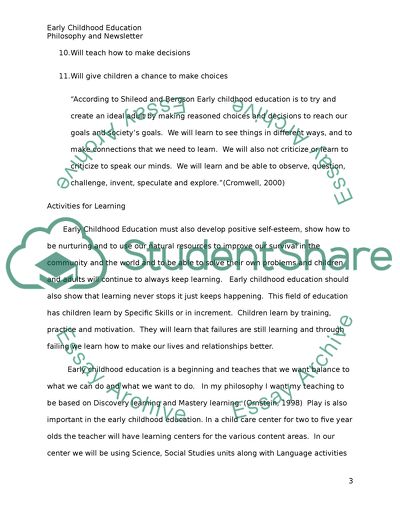Cite this document
(“Early childhood - Philosophy and newsletter Assignment”, n.d.)
Retrieved from https://studentshare.org/education/1469355-early-childhood-philosophy-and-newsletter
Retrieved from https://studentshare.org/education/1469355-early-childhood-philosophy-and-newsletter
(Early Childhood - Philosophy and Newsletter Assignment)
https://studentshare.org/education/1469355-early-childhood-philosophy-and-newsletter.
https://studentshare.org/education/1469355-early-childhood-philosophy-and-newsletter.
“Early Childhood - Philosophy and Newsletter Assignment”, n.d. https://studentshare.org/education/1469355-early-childhood-philosophy-and-newsletter.


